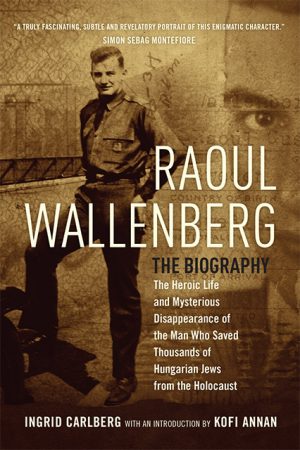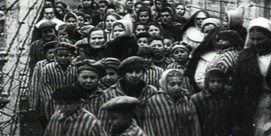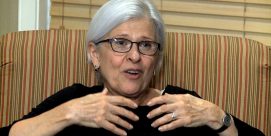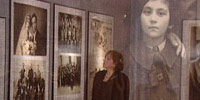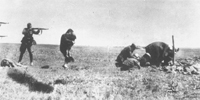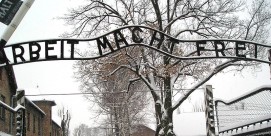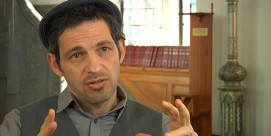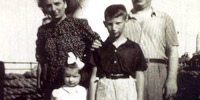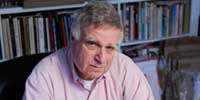“Righteous Among Nations”: The Story of Raoul Wallenberg
Read producer Susan Goldstein’s e-mail interview with Swedish journalist Ingrid Carlberg, author of Raoul Wallenberg: The Biography (MacLehose Press, 2016). Wallenberg was Sweden’s envoy to Budapest at the height of the Holocaust. He saved the lives of thousands of Hungarian Jews, yet his own disappearance at the end of the war and his death in the Soviet prison system remain unexplained.
Why did Raoul Wallenberg risk his life to save thousands of Hungarian Jews? Did he have religious or moral motivations?
He never himself explained why he accepted the risky mission and in haste left Sweden for Budapest in July 1944, quickly assigned as a temporary Swedish diplomat. But he was not an ideological person, nor especially religious. He was vehemently anti-Nazi in private, but not the kind of person who participated in the public debate during the war. He was the kind of person who preferred to act, rather than letting time pass by in endless political discussions. If you ask me, I would say that he left due to a combination of identification with the victims, moral duty, and this action-oriented personal mentality.
Raoul Wallenberg was not a typical Swede. He was only 32 years old that autumn in Budapest and had spent nearly five years abroad. It’s important to remember that he also spent several months in Haifa, British Palestine, in the middle of the nineteen-thirties. There he lived in a colony of German Jews who had fled Nazi persecutions. That gave him an insight into the severe conditions for the Jews in Nazi Germany, an insight that was rare in Sweden at that time.
Had Wallenberg known Jewish families in Sweden?
Due to the experience I mentioned above, he came in contact with a lot of Jewish families in Stockholm. He was a businessman, and it is significant that all the business partners he collaborated with before leaving for Budapest had one thing in common—they were all Jewish refugees. This was rare in Stockholm, especially in the end of the thirties. This was a time when Swedish business organizations campaigned to stop Jewish refugees from entering Sweden, in order to avoid “competition.” Raoul Wallenberg followed another path. He had done some research and had learned that he had a microscopic part-Jewish ancestry: one-sixteenth himself, which he often, and with pride, exaggerated in conversations with friends, presenting himself as an eighth Jewish, a quarter Jewish, or even half Jewish! That was also quite rare in Stockholm at the time.
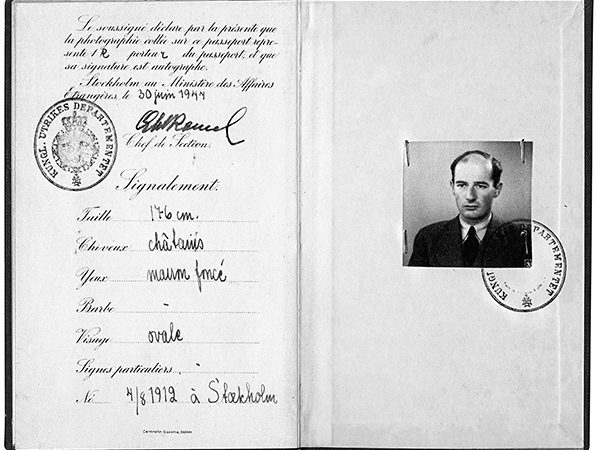
Raoul Wallenberg’s diplomatic passport. Photo credit: Nina Lagergren
What did you uncover from your work on the biography?
Huge question! You could say that my overall ambition was to uncover the whole story, that is, get behind the myths and conduct the time-consuming research that has never been done, uncover the real story of his life, his deeds, and his destiny, the one based solely on facts.
By digging in archives, both known and hitherto unknown, both official and private, and by meeting and interviewing family, survivors, and collaborators, I managed to uncover a lot when it comes to his life before Budapest, who he really was as a person. I was also able to get close to the real day-to-day work in Budapest, to go behind the myths of the lonesome hero Wallenberg. Raoul Wallenberg was not the only neutral diplomat active in rescue missions in Budapest that autumn; he was more to be seen as a key player in a collective effort. He stood out, indeed, building an organization with 350 people employed that functioned as a well-organized business in the middle of chaos. And I believe that I am the first one ever to depict the whole post-war drama, from all perspectives: the family, the Kremlin, and the government of Sweden. I could, among other things, reveal that the sudden rise of awareness of the Raoul Wallenberg case on an international level and his sudden international fame was a result of, among other things, a CIA covert psychological operation in Europe.
Why was he arrested as a spy by the Soviets, and what was his fate?
I always say that I would have been more surprised if the Soviets had not arrested Raoul Wallenberg, given all the various suspicions the Kremlin linked to his person. The real enigma is why he wasn’t released.
We don’t know for sure why he was arrested.He was never prosecuted, there was never a trial, and no interrogation protocols have ever been made public. What we know is that he told his cellmates he was accused of being a spy. Why? Well, to start with, Raoul Wallenberg’s rescue mission was a cooperation between neutral Sweden and the United States, through the War Refugee Board. Since Stalin’s suspicions toward the US had started to reach a world war level already in 1944, the American involvement in Wallenberg’s mission most certainly was enough reason.
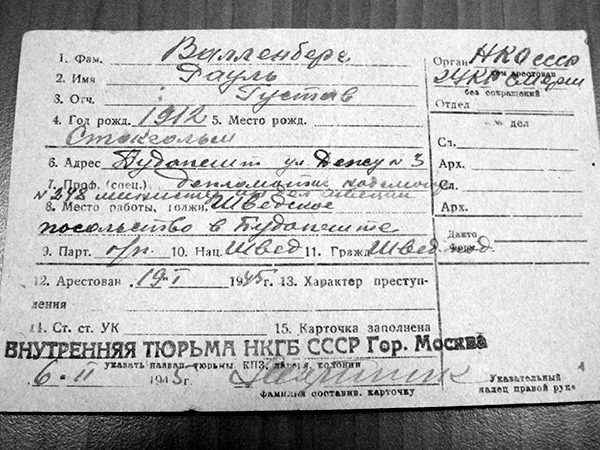
Prison card that registered Raoul Wallenberg in the Lubyanka Prison. Photo credit: Ingrid Carlberg
Stalin was convinced that the Western allies were betraying him, negotiating in secrecy a separate peace with Germany. Such negotiations indeed took place in secrecy, and relatives of Raoul Wallenberg, the bank directors Jacob and Marcus Wallenberg, had acted as secret messengers in between. So both the link to the US and the link to Jacob and Marcus Wallenberg were, in the conspiratorial surroundings of Stalin, more than enough to motivate an arrest of Raoul Wallenberg.
We still do not know for sure his fate. We know that he lived in Moscow prisons for at least two-and-a-half years, and today we can follow how he was moved around. But the concrete traces disappear in July 1947, when Russia still claims today that he died a natural death, from a heart attack in his cell in Lubyanka prison. For several reasons, we can be very sure that this is a lie, which does not mean we can prove that he lived much longer. Research is still going on.
How should we remember him?
As a young man, only 32 years old, who immediately and with an impressive drive understood that, in a situation where tens of thousands of people are fleeing from absolute evil, political declarations and emotional speeches are never enough, no matter how beautifully worded; who understood that in order to save lives in a desperate situation you have to be action-oriented, hands on. You have to organize and deliver.
How does Sweden view him?
Let’s put it like this: It is not thanks to Sweden that Raoul Wallenberg is internationally known and recognized for his deeds in Budapest 1944. For decades he was above all a troublesome political issue on the diplomatic agenda, complicating Sweden’s relations with the Soviet Union. (This is rather difficult to explain, but you will get the full picture in my book.) Let’s just say that I grew up in Sweden in the seventies, and I never learned anything about the role of Raoul Wallenberg in Budapest in the end of World War II. In recent years this has changed, and today we do stand up more for the legacy of Raoul Wallenberg, even in Sweden.
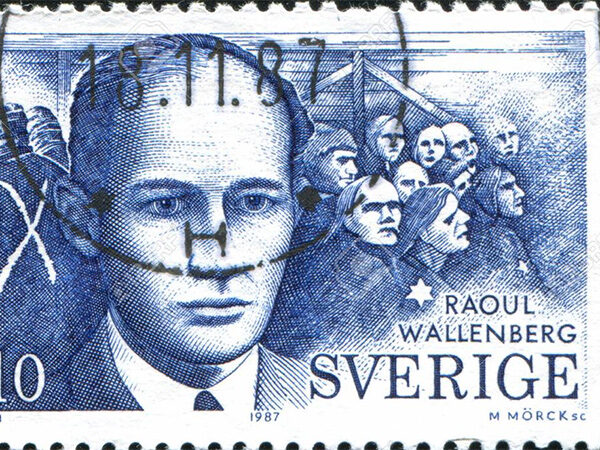 Is there anything you want to add about the impact of Wallenberg’s story on you and your work?
Is there anything you want to add about the impact of Wallenberg’s story on you and your work?
This is by far the most interesting and demanding book, both emotionally and intellectually, that I have ever written. I fell into tears several times throughout my work on the third part of the book, for example. That has never happened to me before. The Raoul Wallenberg story is a hero tale and a family tragedy of unbearable proportions. At the same time, it represents such a deep political wound in Sweden, such a dark history of the Cold War period. I decided to dig up all of these buried, sensitive details of a story that everybody has to read to understand what happened. But I never imagined it was a story of such overwhelming dimensions.

